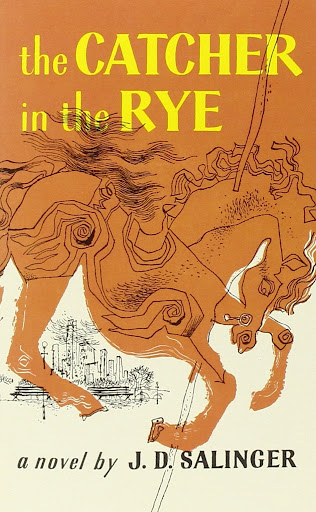Is it Worth the Read? Catcher in the Rye

Image courtesy of amazon.com
By Caroline Morris
This is a controversial one. Putting aside the fact that this book inspired the assassination of John Lennon, it is also hated by countless high school students across the country. Or, perhaps worse, worshiped by fanatical anarchist teen boys.
I, however, have a deep love for J.D. Salinger’s The Catcher in the Rye—and I promise it’s based on literary merit.
Catcher is an American Bildungsroman (a coming of age novel) released in the 1950s, placing its context and protagonist Holden Caulfield in the early years after World War II. The novel follows Holden as he wanders through New York City after getting expelled from boarding school.
What people always remember about Catcher is Holden, an impulsive, chaotic 16-year-old with an apathetic worldview who incessantly calls everyone and everything “phony.” He is, for many people, the reason to hate this book; his perspective is insurmountably aggravating.
I get it. Holden is a deeply flawed character. But here’s the thing—you’re not really supposed to like him. Sure, I love him because I have a lot of sympathy for the trauma he has undergone and his obvious mental health issues—and because his illogical and ridiculous antics make me laugh—but I also know that if I met him in real life we would be enemies because he’s so annoying.
This is part of what makes Catcher so powerful–the writing of this character. Holden Caulfield is a goldmine of psychological analysis written masterfully by Salinger. Though the entire novel is not stream-of-consciousness, it is dominated by streams-of-consciousness and free associations from Holden.
These enormous and dense sections expertly convey Holden’s character through his distinctive voice, but they also play with the audience’s knowledge and the concept of thought. Despite the fact that we are getting every thought that runs through Holden’s head, there is still so much missing. Beyond a lack of context, the fact is that there are things that Holden will not or cannot reveal even within the safety of his own mind. Even there, the fullness of truth is not guaranteed. Once you realize that Salinger is engaging with the question of what realities we keep hidden from even our own minds, this novel’s mastery becomes instantly clear.
The literary technique of an unreliable narrator always fascinates me, especially in this style where it pushes up against the reality of thought and how a writer can convey the genuine experience of thinking. This is reminiscent of Virginia Woolf’s Mrs. Dalloway, in which the audience gets to see the characters repress the truth inside of their minds in real-time. It is an incredibly difficult task and one that Salinger handles impressively.
Beyond this high falutin reading of the narrative technique, there is also a beauty in Catcher that should not be forgotten, particularly in the symbolism and emotional effect of this book. The ducks in the winter, the red hunting hat, the broken vinyl record, and the baseball mitt with poetry in green ink will stay with me forever.
All of these working together, the novel is personally one of my favorite books, and so I recommend it to everyone who is old enough to discern that they should not be trying to emulate Holden Caulfield (a real and present danger of this book). But it is ultimately the psychological value of Holden that makes the book worth the read and may convince current haters to convert to fans, so long as they can push through the quasi-intentional displeasure of spending time with such an annoying 16-year-old boy.







